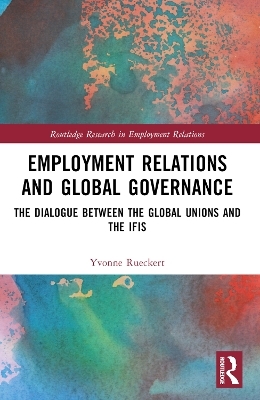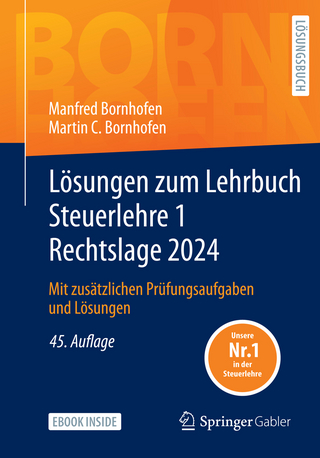
Employment Relations and Global Governance
The Dialogue between the Global Unions and the IFIs
Seiten
2024
Routledge (Verlag)
978-1-032-53175-5 (ISBN)
Routledge (Verlag)
978-1-032-53175-5 (ISBN)
- Lieferbar (Termin unbekannt)
- Versandkostenfrei innerhalb Deutschlands
- Auch auf Rechnung
- Verfügbarkeit in der Filiale vor Ort prüfen
- Artikel merken
Globalisation has created many opportunities for economic development, but it is also associated with rising income inequality and poverty. International crises such as the international financial and economic crisis of 2008, and more recently the global health pandemic, have led to a rise in unemployment and income losses for workers and a surge in the violation of workers’ rights.
At global level intergovernmental organisations including the World Bank and the IMF are influential actors and policy makers which promote the UN Sustainable Development Goals. However, the International Financial Institutions (IFIs) have been criticised for their internal political power imbalances and macroeconomic policy prescriptions based on neo-liberal principles. The Global Unions and their affiliates as well as the International Labour Organisation (ILO) regularly comment on the negative impact of the IFI’s policies in regard to labour flexibilisation and the privatisation of public and social services.
In 2002 a formalised dialogue was established between the Global Unions and the IFIs which addresses labour, social and environmental issues. This dialogue takes place at three levels: the country level, the sector level, and the headquarters level. The ILO maintains its own dialogue with the IFIs, but it also participates at the headquarters-level dialogue between the Global Unions and the IFIs.
Employment Relations and Global Governance focuses on the headquarters-level dialogue which can be considered as a strategic instrument that helps the Global Unions and their affiliates to exercise influence over the policies of the IFIs, especially those policies which concern workers. The book describes and analyses the development of the dialogue since its establishment with a particular focus on factors which promote and hinder the dialogue.
The book provides important insights into the real-world functioning of the institutions of economic global governance and its broader impact on the world of work. It is likely to be key reading for academics, researchers and students studying global employment relations, political economy, and international organisations. It will also be of interest to international and national trade unions, non-governmental organisations, and policy makers.
At global level intergovernmental organisations including the World Bank and the IMF are influential actors and policy makers which promote the UN Sustainable Development Goals. However, the International Financial Institutions (IFIs) have been criticised for their internal political power imbalances and macroeconomic policy prescriptions based on neo-liberal principles. The Global Unions and their affiliates as well as the International Labour Organisation (ILO) regularly comment on the negative impact of the IFI’s policies in regard to labour flexibilisation and the privatisation of public and social services.
In 2002 a formalised dialogue was established between the Global Unions and the IFIs which addresses labour, social and environmental issues. This dialogue takes place at three levels: the country level, the sector level, and the headquarters level. The ILO maintains its own dialogue with the IFIs, but it also participates at the headquarters-level dialogue between the Global Unions and the IFIs.
Employment Relations and Global Governance focuses on the headquarters-level dialogue which can be considered as a strategic instrument that helps the Global Unions and their affiliates to exercise influence over the policies of the IFIs, especially those policies which concern workers. The book describes and analyses the development of the dialogue since its establishment with a particular focus on factors which promote and hinder the dialogue.
The book provides important insights into the real-world functioning of the institutions of economic global governance and its broader impact on the world of work. It is likely to be key reading for academics, researchers and students studying global employment relations, political economy, and international organisations. It will also be of interest to international and national trade unions, non-governmental organisations, and policy makers.
Yvonne Rueckert is Senior Lecturer in the Faculty of Business and Law at the University of Portsmouth, UK. She has held several research and teaching posts in Germany and Spain and was awarded a PhD scholarship from the prestigious German research foundation the Friedrich Ebert Stiftung.
Chapter 1 – Introduction Chapter 2 - Theoretical Framework – Global Governance and Organisation Theories Chapter 3 - The Global Unions – The ITUC, GUFs and the TUAC Chapter 4 - The IFIs – The World Bank Group and the IMF Chapter 5 - The International Labour Organisation and its cooperation with the World Bank and the IMF Chapter 6 - The dialogue and cooperation between the Global Unions, the ILO and the IFIs Chapter 7 - Conclusion
| Erscheinungsdatum | 11.07.2023 |
|---|---|
| Reihe/Serie | Routledge Research in Employment Relations |
| Zusatzinfo | 1 Tables, black and white; 7 Line drawings, black and white; 7 Illustrations, black and white |
| Verlagsort | London |
| Sprache | englisch |
| Maße | 152 x 229 mm |
| Gewicht | 440 g |
| Themenwelt | Wirtschaft ► Betriebswirtschaft / Management ► Finanzierung |
| Wirtschaft ► Betriebswirtschaft / Management ► Personalwesen | |
| Wirtschaft ► Volkswirtschaftslehre ► Makroökonomie | |
| Wirtschaft ► Volkswirtschaftslehre ► Wirtschaftspolitik | |
| ISBN-10 | 1-032-53175-4 / 1032531754 |
| ISBN-13 | 978-1-032-53175-5 / 9781032531755 |
| Zustand | Neuware |
| Haben Sie eine Frage zum Produkt? |
Mehr entdecken
aus dem Bereich
aus dem Bereich
Allgemeines Steuerrecht, Abgabenordnung, Umsatzsteuer
Buch (2024)
Springer Gabler (Verlag)
28,00 €
Unternehmensübernahmen und Finanzierungsstrukturen
Buch | Hardcover (2024)
Vahlen (Verlag)
129,00 €


